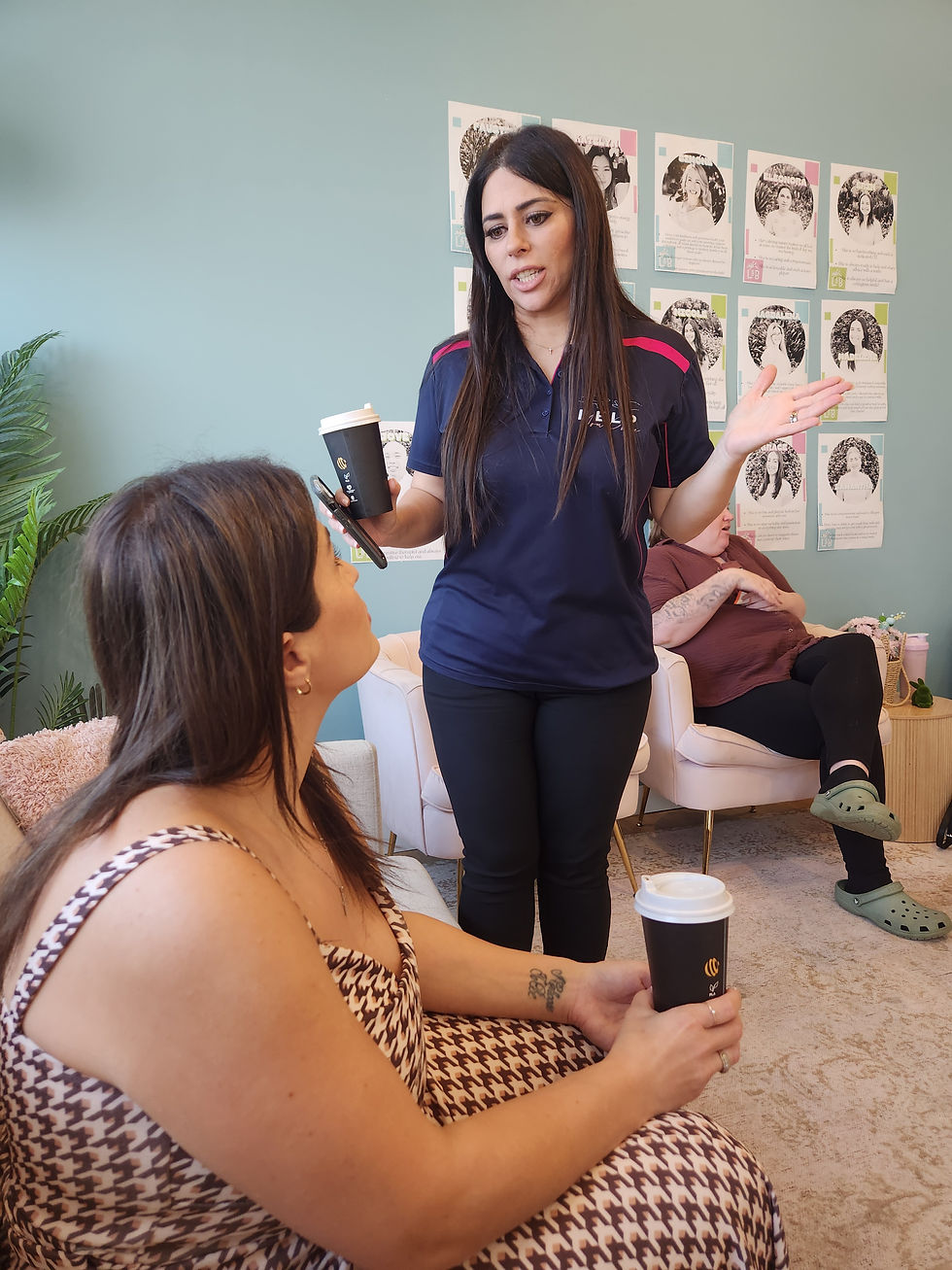ELOPING: Understanding, Preventing and Responding.
- Help You Cope
- Apr 2, 2024
- 4 min read
Updated: Apr 10, 2025

We're thrilled to have Emily Hanlon also known as The Playful Psychologist, a clinical psychologist joining us as a guest blogger in this Eloping blog edition. With her extensive experience and interest in Autism and Intellectual delay Emily brings valuable insights to our community. Without further ado, let's dive into Emily’s insightful blog post on
Eloping.
'As a clinical psychologist, and the sister of an autistic person, I understand the profound challenges that families of autistic children face, especially when it comes to understanding and addressing their unique needs. The constant need to advocate for basic human rights is frankly, exhausting.
Our extended communities seem to rally around people when they need it most, and rightly so! After all, they say it takes a village to raise a child. So why does that village all of a sudden disappear when a disabled child is involved?
One particularly distressing behaviour that many autistic children exhibit is eloping. But what exactly does "eloping" mean in the context of autism, and how can parents navigate this complex issue with compassion and support?
Firstly, it's important to define eloping in the context of autism. When we talk about eloping, we're referring to the tendency of autistic children to wander away from safe environments without regard for their safety. This behaviour can be incredibly dangerous and frightening for both the child and their caregivers. But it is not as simple as a child ‘wandering’ off. Often, autistic children elope out of perceived fear or over stimulation.
Understanding why autistic children may elope is crucial in developing effective strategies to prevent it. Many autistic children elope as a way to escape overwhelming sensory stimuli or uncomfortable situations. For these children, eloping is not an act of defiance or disobedience but rather a coping mechanism to manage their intense emotions and sensory experiences. As a community, it is essential to recognise and validate the child's emotions while also providing them with the support and tools they need to navigate challenging situations. Often this may look like preventative strategies such as understanding the environment your child is entering and coming pre-prepared with sensory tools to support them.
Creating a safe and predictable environment can help reduce feelings of anxiety and overwhelm that may trigger elopement. Establishing clear routines, providing sensory-friendly spaces, and teaching coping strategies can empower children to manage their emotions in healthy ways. That being said, we cannot control for every factor. There is always going to be a siren, a fire alarm, a loud bang, a loud voice, or something that overstimulates a child and may result in eloping). So when I say, ‘be prepared, parents’ I totally expect you to roll your eyes at me. Because no one sees the hard work and sleepless nights you endure to ‘be prepared’ only for one small thing to bring everything crashing down.
In addition to creating a supportive home environment, it's crucial for parents to have a plan in place to locate their child quickly in the event of elopement. This may include using tracking devices, educating neighbours and community members about your child's tendencies, and practicing safety drills with your child. Being proactive and prepared can help mitigate the risks associated with elopement and ensure a swift and safe return home. We have also created a free resource families can download if eloping occurs here .
Recently we saw the best and the worst from the extended community when 12 year old Hussein went missing in Sydney’s west. The community came together and rallied so hard to locate him. However, let’s call it how it is. He should have been found much sooner. It should not have taken 30+ hours to locate a child running around in a nappy (and later completely pants less). While onlookers would ’locate’ him and call authorities, many of these onlookers simply stood by and allowed scared, overstimulated Hussein, to continue to wander through the streets. So while it is often on the family’s shoulders to prepare for elopement, I would like to view this from a different perspective. Perhaps it’s less about assuming a parent ‘lost’ their child and exploring how we, as a community, can support a family to LOCATE their child.
Ultimately, elopement is a complex issue that requires understanding, compassion, and proactive intervention. By recognising the underlying reasons why autistic children may elope and providing them with the support they need to manage their sensory needs, parents can help keep their child safe while also fostering their independence and autonomy. However, elopement is inevitable, as scary as it is. So it is up to us, as a community, to have systems in place and to educate ourselves when this happens.'
Thank you for taking the time to read The Playful Psychologist's insightful article on eloping. We hope you found the information valuable and gained a deeper understanding of this important topic. Additionally you can connect with The Playful Psychologist by joining The family forum on her website here.
Help You Cope together with The Playful Psychologist have created a free downloadable template for families to use in case their child elopes. Click here to access free template or visit www.helpyoucope.com.au where you will also find support for caregivers and their families.





Comments